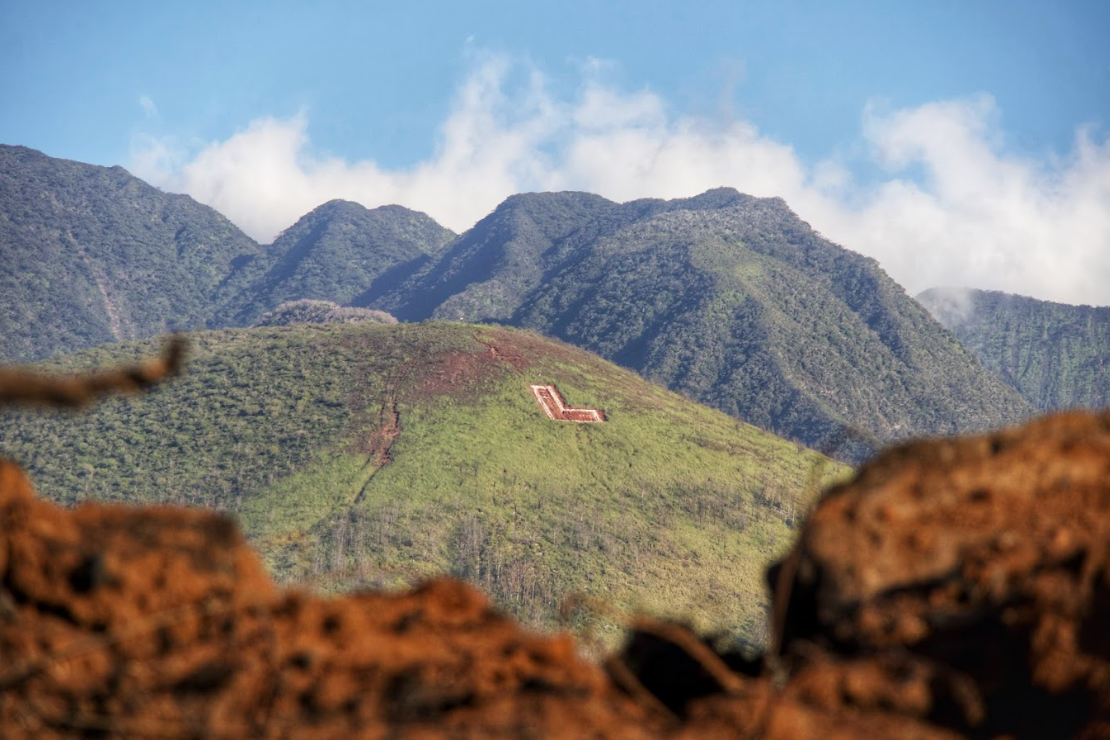This winter, vacationers in Maui were seen purchasing paddle boat trips on one side of the beach, while “Lahaina Strong” flags stood in front of local residential tents on the other.
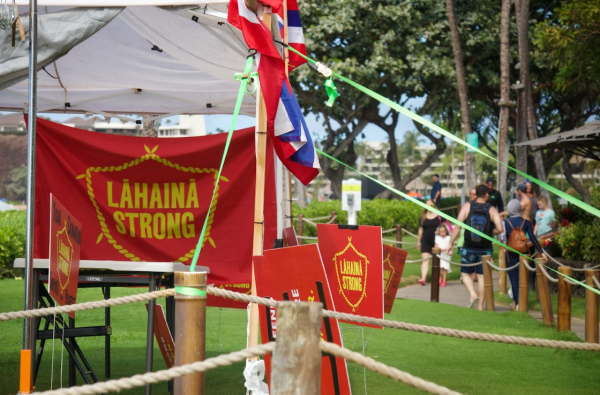
These makeshift shelters serve as a way of protest for dignified housing. Thousands of residents lost their homes and businesses to the deadly wildfires that occurred on the island on August 8, 2023.
Before becoming America’s 50th state, Hawaii (Native spelling: Hawaiʻi), ruled as a kingdom.
One hundred and thirty years ago, American businessmen found interest in the lands. On January 17, 1893, Queen Lili’uokalani’s monarchy was overthrown, despite the political debate about the annexation of the territory.
Today, many natives of the land are still operating as a Hawaiian Kingdom Government. According to the Chairman of the Council of Regency, there is a separation between the government and the state.
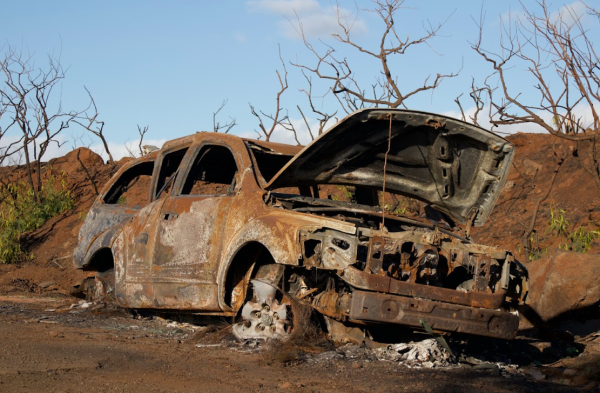
One of these natives is Ke’eaumoku Kapu, a cultural practitioner and founder of the Na’Aikane O Maui Cultural Center in Lahaina, Maui. Last August, the center tragically burned down in one of the deadliest wildfires in U.S. history, alongside a number of official documentation.
Kapu, along with other residents, has been impacted by the devastation of the fires with massive losses of both their homes and members of their community. According to residents, they were then disrupted by the early reopening of tourism on the island as they faced not only a loss of their properties, but also respect for their home.
“People who are coming here are oblivious to our problems,” Kapu said. “We have to find time for closure for ourselves and we are not being allowed to do that, all because of economics.”
The state opened up for tourism just three months after the fires, believing it may get the economy back running.
“A lot of people feel that that’s the cure, but they are not even close. We aren’t going to recover for a long time,” Kapu said. “When you come to Hawaii, be patient, don’t be pushy, have compassion. … Don’t look at us like ‘poor thing,’ we get that lot. … Just respect our islands.”
Tourism has a place in Hawaii’s economy and supports industrial values. However, due to the lack of resources and recovering from devastation, residents share how it’s important for tourists to tread lightly in times of vulnerability.
“The state of Hawaii relies heavily on tourism. If you take the tourists out from the island, no one will make money and no one can pay the bills…It should be a balance,” said Emma Shipe, local business owner of Emma’s Gallery in Lahaina since 1951.
Even though Shipe’s business relies primarily on tourism, she disagreed with the way the island was being reopened.
“Respect the people who have lost their homes,” she said. “Each and everyone grieves differently.” She mentioned that some residents faced housing instability because hotel owners wanted to vacate their spaces to make room for high-paying tourists.
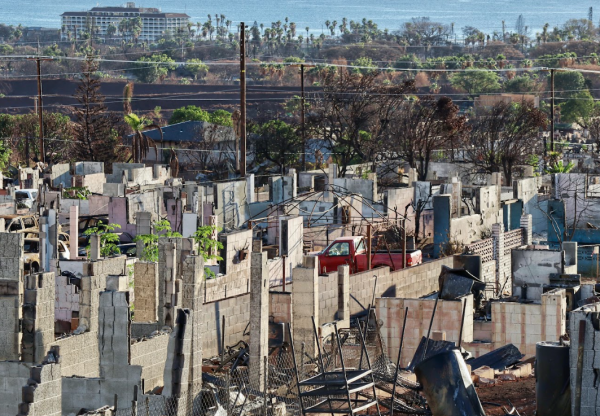
Another resident, Nico Nishioka, said that local organizations like the Federal Emergency Management Agency (FEMA) and the American Red Cross were providing food and support resources for displaced fire victims. He was one of the displaced residents staying in the hotels alongside three roommates.
“I’m blessed to have a room,” Nishioka said. “It is sad to see that there’s a lot of other displaced people who can’t get into hotels. … Tourism helps us be out here to work. I feel like it’s a mix.”
Nishioka is an employee at a boat rental business on the beach in front of several large hotels, restaurants and resorts.
Lahaina, Maui has long been a bustling tourist destination. Glittering water and warm beaches attract visitors from all over the world. However, those not living on the island also expressed concerns over the rapid reopening of tourism.
“There’s definitely a split between people who want visitors to still come because that’s their livelihood versus people who are like ‘this too soon,’” said Dana Hallstorm, a visitor from Minnesota on vacation with her husband. “One of the ways we’re trying to still do tourism respectfully is making sure we’re tipping people well. I’ve seen some people bargaining, trying to get a deal, and I feel like now is not the time to do that. They should be as supportive as they can.”
Memorials lining freeways and tents set up throughout the island provide visitors a clear view of life after the fires. Even non-native residents shared their observations of life on the island and ways to be respectful during their time there.
Cristina Armijo is a San Diego State University alumni who moved to Hawaii a few years back. As a current Kihei resident, Armijo came to Lahaina to volunteer at a local toy drive. Over time, she learned that there is a sense of responsibility to have as a foreigner when visiting the island.
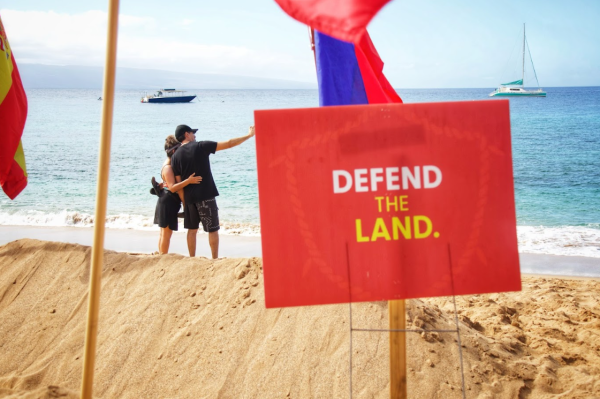
“I think that I moved here very naively, still adjusting to the culture and history. If I knew then what I know now, I wouldn’t have moved here,” Armijo said. “We hear this false narrative that folks need to come here to support tourism. And that’s not fair (to locals). If resources were properly diverted back to the Hawaiian people and to the land, there would be a restoration to the community, that culture and the land that was derived.”
According to Armijo, for tourists who are already visiting the island, some ways to be respectful and responsible are to clean up trash from the beach, support local organizations and be conscious of how sacred the land is.
“Being from San Diego, California, I think one thing you learn living here on Maui is seeing how interconnected we all are,”Armijo said. “We should care about what’s happening with disasters like the fire and we need to know what’s happening with one another.”
Even though the state of Hawaii recognizes Honolulu as its capital, Lahaina was the original capital of the Hawaiian Kingdom. Many still hold a kingdom identification card and it is widely acknowledged, not just by locals, that Hawaii was wrongfully claimed as a state.
In light of this, native and non-native residents alike call for visitors to be aware and respectful of the islands, its rich, multifaceted history and local authority when vacationing.
Alongside Kapu’s practice, he creates informational Youtube videos educating others on Hawaiian culture and history. In his most recent video, it was shared that the cultural center that burned down contained official documents, maps, genealogy and books that were signed by kings.
The wildfires not only burned homes, but left ashes of what was once a kingdom.




